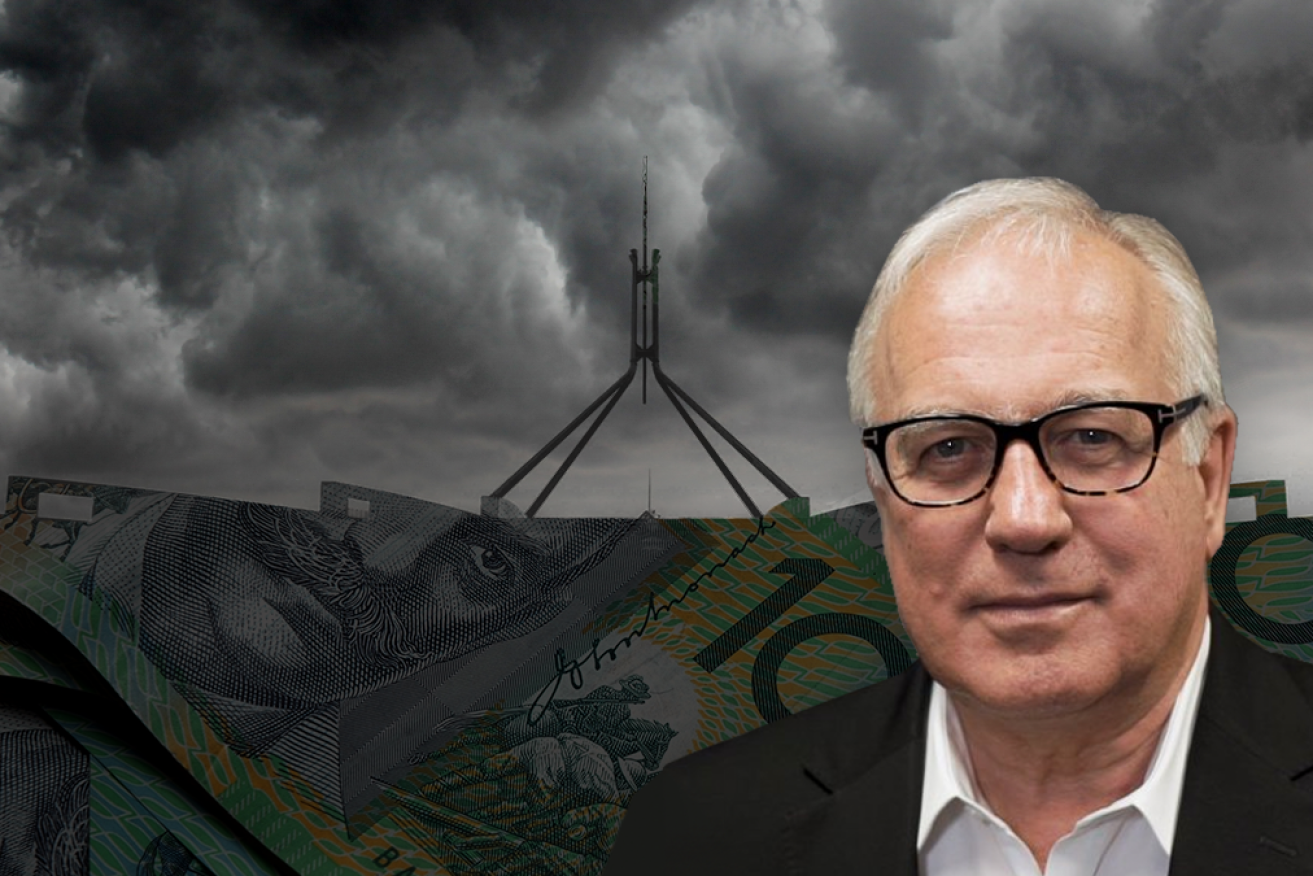Alan Kohler: The real scandal in the Pandora Papers


The Australian government has failed to do what it said it would to stamp out money laundering, writes Alan Kohler. Photo: TND
The most disturbing part of the Four Corners program this week about the Pandora Papers leak was the statement by Greens Senator Peter Whish-Wilson that lobbying and donations by lawyers, accountants and real estate agents have successfully blocked any action on money laundering in Australia.
That kleptocrats and other rich thieves are hiding trillions of dollars from authorities and tax collectors is no surprise, although it’s good that there are another 11.9 million documents in the hands of journalists to prove it.
But Australian lawyers, accountants and real estate agents lobbying to stop the government doing something about it, and both major parties apparently complying, is both sadly believable and shameful.
And as Michael Pascoe pointed out on Wednesday, the Morrison government’s aversion to transparency is consistent at least.
Two key things have not been done: First, the 2006 anti-money laundering and counter terrorism financing (AMLCTF) laws have not been amended as promised to include lawyers, accountants and real estate agents, so they still only apply to banks and casinos, and second, the government has not introduced a Register of Beneficial Ownership (RBO) as it promised in 2016.
When the AMLCTF laws were passed in 2006, and AUSTRAC was set up, there was meant to be a second tranche of the law that required lawyers, accountants and real estate agents, along with banks and casinos, to report suspicious transactions.
It didn’t happen while the Coalition was in power, and the Labor Party didn’t do it during its six years either.
Inaction on both sides
Last December, the government put forward a minor amendment to the AMLTCF law and the Greens used it to put up a further amendment requiring that second tranche to be legislated by July 1 this year.
Both major parties voted against it.
In announcing Labor’s vote, Senator Kimberley Kitching said: “While we support the intent of the additional designated services proposed by the Greens, Labor does not believe this is the right way to achieve considered law reform. We are concerned about the unintended consequences of this amendment and want to make sure our counterterrorism financing laws make it harder, not easier, for money launderers or terrorist financiers.”
According to the Greens’ Treasury spokesman, Senator Nick McKim, “Australia is now one of only six countries in the world not to have included the gatekeepers within the scope of anti-money laundering and counterterrorism financing laws”.
The others are the United States, China, Madagascar, Mauritius and Mongolia.
As for the separate issue of a register of beneficial ownership to remove the cloak of secrecy – after the Panama Papers in 2016, which was the first big leak about hidden offshore money, the then assistant treasurer, Kelly O’Dwyer, said: “We agree that there needs to be a register of beneficial ownership in this country.”
Her successor Stuart Robert later said: “We remain committed and we’re considering options.”
In 2016, the government launched something called the “Open Government National Action Plan”, which involved a consultation period that ended in March 2017.
But nothing then happened, and in response to a question on notice from Senator Whish-Wilson, Treasury rewrote history: “No commitment to implement a register has been made by government.”
That wasn’t true.

Greens Senator Peter Whish-Wilson says rich crooks are using laundered money to push up house prices in Australia. Photo: AAP
Bidding up house prices
One of the key points made by several people in the Four Corners piece on Monday was that money laundering and tax avoidance are partly responsible for Australia’s high house prices, because crooks and tax avoiders are using their secret cash to buy real estate and bid up prices.
And AUSTRAC supported that idea in a risk assessment of money laundering and terrorism financing published this year.
AUSTRAC included among the possible consequences of criminal activity in the financial system: “Widespread or concentrated real estate purchases with the proceeds of crime, driving property prices up and pricing legitimate buyers out of the market”.
But the chairman of the House of Representatives Committee on Tax and Revenue, Jason Falinski, who is currently running an inquiry into housing affordability and supply, told me this week he thinks that’s simply not true.
“We asked the CEOs of the big four banks, ASIC and APRA whether it would be possible to launder money through Australian real estate and they all said it wouldn’t be,” he said.
“For a start, the “know your customer” (KYC) rules require land registry offices to record the beneficial owners of properties, even if the registered owner is a nominee company, and also any unfinanced purchases trigger an ATO alert.”
The rest of us cop it
The Pandora Papers reveal that some of the dark cash has made its way into commercial real estate, including farms, but the evidence for residential buying is more sketchy.
But even if house prices are not a reason to do something about clandestine foreign investment in Australia being used for money laundering and tax avoidance, there are plenty of others.
The main one being simply that the rest of us, globally, are paying more tax than we should to finance the operation of governments.
Rich crooks who use tax havens and bring the money back here to spend it are allowed to stay cloaked because of failures by the Australian government to do what it said it would do.
And that seems to have happened because lawyers, accountants and real estate agents lobbied them, and perhaps donated some of the dirty cash to them.
Alan Kohler writes twice a week for The New Daily. He is also editor in chief of Eureka Report and finance presenter on ABC news








